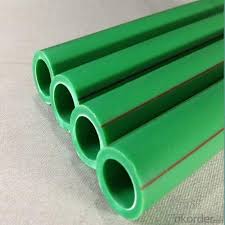Jan . 01, 2025 05:34 Back to list
Various Types of HDPE Pipe Products for Different Applications and Uses
Understanding the Types of HDPE Pipe Products
High-Density Polyethylene (HDPE) pipes are widely used in various industries due to their remarkable properties, including flexibility, durability, and resistance to corrosion. Manufactured from petroleum, HDPE is known for being a highly versatile material, making it suitable for a variety of applications. This article explores the different types of HDPE pipe products, their characteristics, and typical uses.
1. HDPE Pipe for Water Distribution
One of the most common types of HDPE pipes is used for water distribution systems. These pipes are designed to withstand high pressures, making them ideal for transporting potable water. The smooth inner surface of HDPE pipes ensures minimal friction loss, resulting in better flow rates. Additionally, HDPE's resistance to rust, corrosion, and biofilm formation makes it an excellent choice for maintaining water quality over long distances.
2. HDPE Drainage Pipes
HDPE drainage pipes are another popular application of this material. Designed primarily for stormwater management and sewage systems, these pipes offer efficient drainage solutions. Their flexible nature allows for easy installation and adaptation to various terrain types. With excellent resistance to chemicals and UV radiation, HDPE drainage pipes have a longer operational life compared to traditional materials like concrete and metal.
3. HDPE Sewer Pipes
HDPE sewer pipes are designed specifically for underground sewer applications. They possess high tensile strength and resistance to external loads, making them suitable for high-traffic areas. The durability of HDPE sewer pipes reduces the chances of leaks, ensuring effective waste transportation and minimizing environmental impacts. Moreover, their jointing systems, which typically use heat fusion, provide a watertight seal and prevent groundwater infiltration.
4
. HDPE Pressure Pipestype of hdpe pipe products

HDPE pressure pipes are designed to transport liquids under high pressure. These pipes are commonly used in irrigation systems, industrial applications, and oil and gas transport. With varying SDR (Standard Dimension Ratio) ratings, HDPE pressure pipes can be tailored to meet specific pressure requirements. Their lightweight nature also simplifies the handling and installation process on-site.
5. HDPE Industrial Pipes
Industrial applications often require pipes that can withstand hostile environments, including chemicals and extreme temperatures. HDPE industrial pipes, designed for these harsh conditions, offer excellent chemical resistance and can carry a wide range of substances, including acids and bases. Industries such as mining, chemical processing, and manufacturing frequently utilize HDPE industrial pipes for their critical operations.
6. HDPE Conduit Pipes
HDPE conduit pipes are primarily used for electrical and telecommunications applications. They serve as protective casings for electrical wires and cables, helping to prevent physical damage and interference from moisture. The flexibility of HDPE conduit pipes allows for bending and shaping during installation without compromising structural integrity. Their lightweight properties facilitate transportation and installation, making them an efficient choice for electrical infrastructure.
7. HDPE Sheet and Fabricated Products
In addition to conventional pipe forms, HDPE is also manufactured in sheet form for custom applications. These sheets can be fabricated into various shapes, including tanks, liners, and racks. Industries use HDPE sheets for their resistance to chemicals and moisture, especially in applications like agricultural liners and storage systems.
Conclusion
HDPE pipes are an essential component in modern infrastructure. Their range of types—from water distribution and drainage pipes to industrial and conduit applications—demonstrates their versatility and efficacy. Each type of HDPE pipe is designed to meet specific needs while offering benefits such as flexibility, durability, and resistance to environmental factors. As industries continue to evolve, HDPE pipes remain a crucial solution for reliable and sustainable piping systems. Whether in residential, commercial, or industrial settings, the choice of HDPE products aligns with the demands of the modern world, ensuring longevity and performance in various applications.
-
High-Quality PVC Borehole Pipes Durable & Versatile Pipe Solutions
NewsJul.08,2025
-
High-Quality PVC Perforated Pipes for Efficient Drainage Leading Manufacturers & Factories
NewsJul.08,2025
-
High-Quality PVC Borehole Pipes Durable Pipe Solutions by Leading Manufacturer
NewsJul.08,2025
-
High-Quality PVC Borehole Pipes Reliable PVC Pipe Manufacturer Solutions
NewsJul.07,2025
-
High-Quality UPVC Drain Pipes Durable HDPE & Drain Pipe Solutions
NewsJul.07,2025
-
High-Quality Conduit Pipes & HDPE Conduit Fittings Manufacturer Reliable Factory Supply
NewsJul.06,2025

